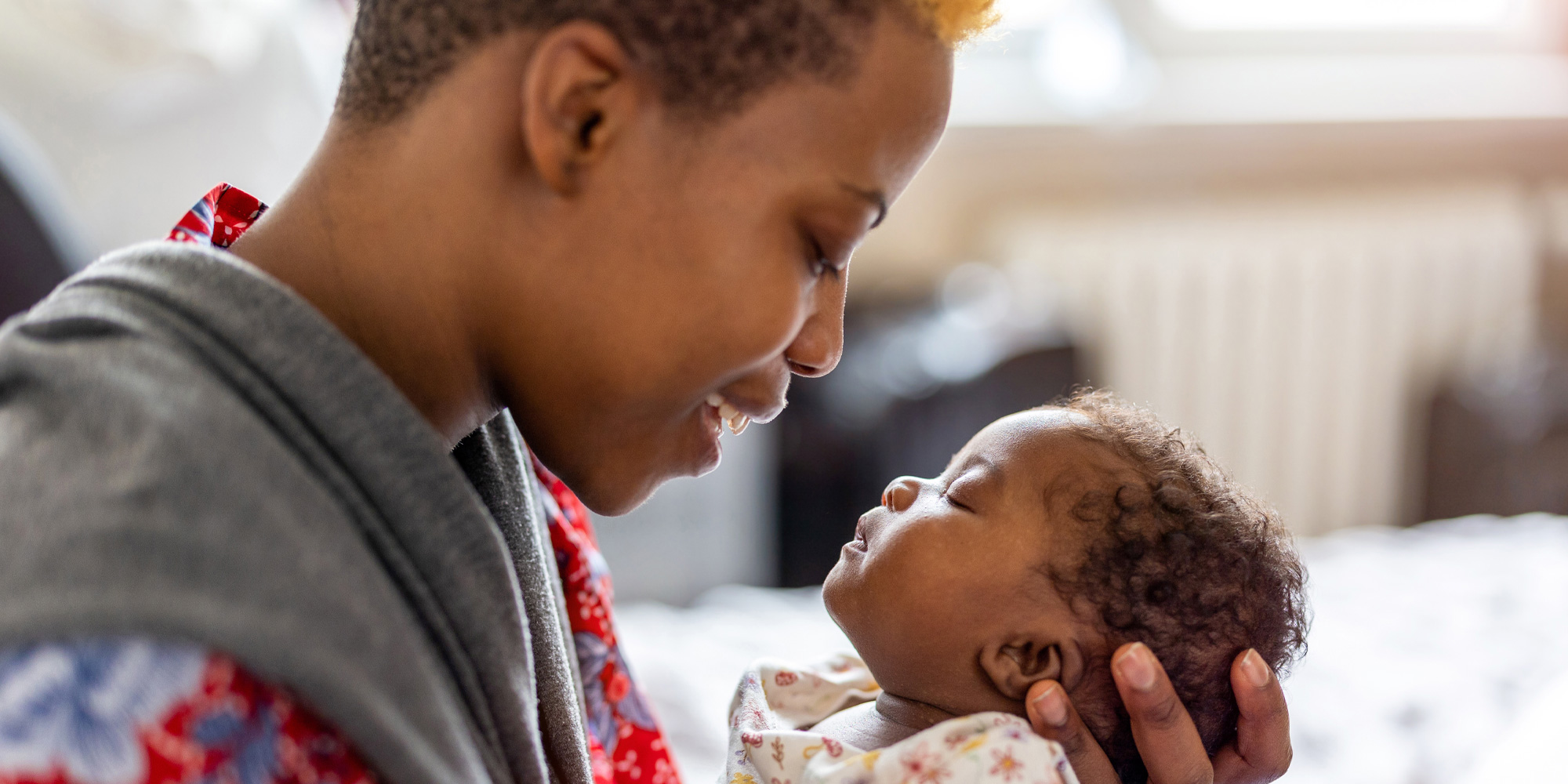Although we’re back to attending in-person events with our Early Learning Nation Studio, we’ll continue to recap top virtual conversations, town halls, webinars and virtual events from the Early Learning field. Stay tuned for more Top Takeaways, and visit our Early Learning Nation channel on YouTube for interviews with leaders from education, child development research, business, politics and more.
On February 7, the Hunt Institute hosted a conversation on the health outcomes of mothers and infants of color, as compared to their white counterparts. Dan Wuori, Senior Director of Early Learning, moderated the discussion with Stephanie Spencer, executive director and founder, Urban Baby Beginnings; and Celeste Sanchez Lloyd, Program Manager, Strong Beginnings. The two experts shared insight on initiatives and interventions that promote equitable outcomes for pregnant and parenting families.
Here are 5 top takeaways:
1. Racism is at the root of health disparities. Not all U.S. mothers and babies go through the same experiences in the same way. The infant mortality rate among Black newborns is more than twice that of white babies during the first year. Mothers of color die during childbirth more than three times as often as their white peers. “Racism is the root of where racial disparities begin,” said Sanchez Lloyd—whose work is an initiative of First Steps Kent (read more about this organization).
Contrary to the hypothesis that economic circumstances can explain the gap, a recent study conducted by the National Bureau of Economic Research shows that household income plays no role in determining maternal and infant health outcomes. Increasingly, these disparities are recognized as a problem with implicit biases within health care and other systems.
👉 Childbirth Is Deadlier for Black Families Even When They’re Rich, Expansive Study Finds (NYT)
2. Educating physicians and clinical care workers is paramount. Required lessons and tools to investigate personal biases, power and privilege improve the quality of care. Recommended measures include using proper pronouns, pronouncing names correctly and appropriately addressing questions to fathers and other caregivers in the room.
Sanchez Lloyd explained that clinical workers need to “add more humanity and see the entire patient, beyond what is written on their chart.” These efforts make mothers feel they have a voice to advocate for themselves effectively. In addition to educating clinical partners, it is important to engage family and community support systems.
3. Fathers should be in the fold. “We want to break this narrative that Black fathers don’t exist or that they are not present.” Sanchez Lloyd said, “Continuing to approach this from a maternal child health standpoint, we’re leaving out a key ingredient: fathers.”
Outcomes improve when fathers are involved because mothers feel more supported. “You don’t have to be in a romantic relationship with the mother of your child to be a great dad,” she said. Strong Beginnings’ Manhood Monday programming, covers unconventional topics historically left out of fatherhood and recently went virtual. The lessons range from family planning, and prenatal to 18 months after delivery. They ensure fathers feel supported by offering access to mental health therapists and other community resources.
4. Nonclinical, community support is essential. “Community-based prevention strategies help avoid hospitalization and long-term chronic illness,” Spencer explained. “We need to ensure that people have access to the resources they need,” such as housing and a living wage.
Community health workers and doulas are also part of the systemic response. “Community doulas provide physical, emotional and educational support to pregnant and postpartum people up to the first year of birth,” Spencer explained. “They are a reflection of the community. When people are assisting others in the community that they belong to, we tend to have better outcomes.”
👉 Critical Building Blocks for a Healthy Start: Championing Equitable Maternal Health, Feb. 28 (Alliance for Early Success)
5. Some states are making strides. States play an influential role in the implementation of effective, high-value maternity services, particularly through insurance regulations. Medicaid is the health insurer of over 40% of births in the United States and 66% of all births to Black mothers.
Virginia recently became the fourth state to reimburse doulas under their Medicaid program. As of January 1, the Michigan Department of Health and Human Services recognized doula initiatives as being reimbursable. Several other states are in various stages of consideration, planning or implementation of Medicaid doula reimbursements. “There are some gaps, and doulas have shown that they can be present in those gaps, which leads to successful deliveries,” Sanchez Lloyd said.
👉 Read more: Geography and Race, State by State, Can Determine the Fate Of Both Mother and Baby

Mark Swartz
Mark Swartz writes about efforts to improve early care and education as well as developments in the U.S. care economy. He lives in Maryland.



